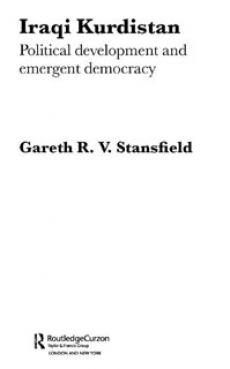
Iraqi Kurdistan: Political development and emergent democracy
Iraqi Kurdistan is at a crossroads in terms of its political development. At the time of writing, the political parties of Iraqi Kurdistan have governed and administered the region under their territorial control since 1991, when the administration and military forces of the Government of Iraq (GOI) withdrew from the north of the country. The intervening decade has not been an easy period for the Iraqi Kurdish de facto state and its people. For the first five years of the 1990s, the political system of the region exhibited widespread instability, with internecine fighting being common, and the involvement of foreign national governments in the affairs of the fledgling de facto state seemingly being a constant feature of political life.
However, since 1997, Iraqi Kurdish politics have stabilized significantly, with the region split between the two major parties of the Kurdistan Democratic Party (KDP), and the Patriotic Union of Kurdistan (PUK). Both parties recognized that if they did not possess the strength to usurp the other, or the political will to promote a unified system of governance, then a divided situation would be the next best thing. Recently, in April 2002, the first signs of a possible re-unification of the administration have been seen. The leaders of the KDP and PUK, Massoud Barzani and Jalal Talabani respectively, met in Frankfurt, Germany, to discuss several key issues including Kurdish involvement with US plans to overthrow the regime of Saddam Hussein and efforts to promote cooperation within the Kurdish ranks, including the bringing together of certain Kurdish public service ministries. But, whilst such actions may occur, senior representatives of both sides privately acknowledge that a full unification is not entertained.
Combined with these developments, a dynamic which fundamentally affects Iraqi Kurdistan is the United Nations (UN) imposed sanctions against Iraq. Sanctions have resulted in widespread hardship for the Iraqi people as a whole, but, with the passing of Security Council Resolution (SCR) 986, which allowed significant amounts of oil to be sold by Iraq in order to purchase humanitarian supplies, conditions in Iraqi Kurdistan have improved. Thirteen per cent of the revenues were guaranteed for the northern governorates under Kurdish control, administered by the agencies of the UN, with the assistance of the Kurdish local authorities.
|